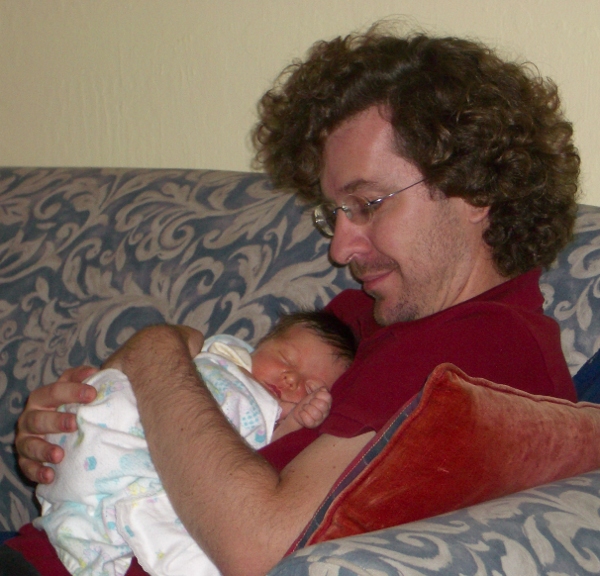 Il portale della famiglia d'Amico
Il portale della famiglia d'Amico
L'ora blu
Quel momento della giornata quando il sole tramonta e tutti i bambini sono colti da una gran tristezza e piangono, anche se sono asciutti, sazi e in buona compagnia. È anche l'ora alla quale, in inverno, ero solito rientrare a casa dal lavoro, anticipando quei minuti che avrei pasasto con il mio pargolo, e che invece avrei passato a consolarlo, perché era la sua «ora blu».
È vero, sono davvero le ore tristi, quelle. Da grandi noi impariamo ad apprezare la maestosità dei tramonti, quando il giorno muore e la vita rallenta, e non ne siamo più spaventati. A volte il ritmo frenetico delle altre ore del giorno ci fanno apprezzare fino in fondo il tempo rallentato di quei momenti, quando il silenzio e la luce obliqua ci suggeriscono di prendercela più comoda. Ma sono lo stesso le ore tristi. La sensazione di perdita e smarrimento che ci dà quel battito rallentato della vita è scolpito in noi dalla nascita e si traduce in tristezza, come una profonda ingiustizia operata contro do noi, e mantiene lo stesso significato anche quando abbiamo imparato ad apprezzare queste sensazioni.
E così, in quelle ore tristi, io lo stringevo a me, per fargli sapere che capivo cosa provava, e lo guardavo intensamente, per fargli sapere che quel lungo giorno si stava avviando ad una placida conclusione, dove lui mi avrebbe trovato pronto a stringerlo, pronto a scoprire cosa aveva imparato quelo giorno, ansioso di giocare insieme in quel mondo nuovo che stava appena scoprendo, e di amarlo. Finché la tristezza non l'avrebbe lasciato, e si sarebbe addormentato, abbandonato completamente a quel sonno tiepido che avvolge solamente i bambini sereni, lui che spazza via così tutte le ansie frenetiche della giornata lavorativa. Lui che dolcemente disinnesca le mie «ore blu».
È l'ora blu.
Non passatela da soli.

The blue hour
Sunset. «È l'ora blu.»
«It's the blue hour», used to say my mother. The time of the day when the sun sets and all babies feel sad, and cry even if they are changed, fed, held and entertained. It was also the time when, in Winter, I used to arrive home from work, looking forward to spend some time with my own newborn baby, and had to instead comfort him, because it was his «blue hour».
It's true, these hours are really blue. We learn as adults to appreciate the majesty of sunsets, when the wind dies, and life slows down, and no longer we are frightened by them. Occasionally the frenetic rhythm of the other hours make us positively appreciate the slower pace of those moments, when silence and oblique light suggest us to slow down. But they are still blue. The sensation of loss that come from feeling life that starts pulsating less and less, and that is hardcoded in us as not happy, not right, keeps carrying that meaning even after nurture has taught us how to appreciate those feelings.
And so, in those blue hours, I held him, letting him know that I understood how he was feeling and looking deep into his eyes to communicate back that the long day has come to a slow conclusion, one in which he'd found me, holding him, listening to what he learned, eager to have fun with his new discoveries of the world, loving him, until the blues were gone and he'd be asleep. Completely abandoned and warm like only comforted babies can sleep, thus blowing away my own fast-paced daily worries just like that. Gently squashing my own «blue hours».
È l'ora blu.
Don't spend it alone.
